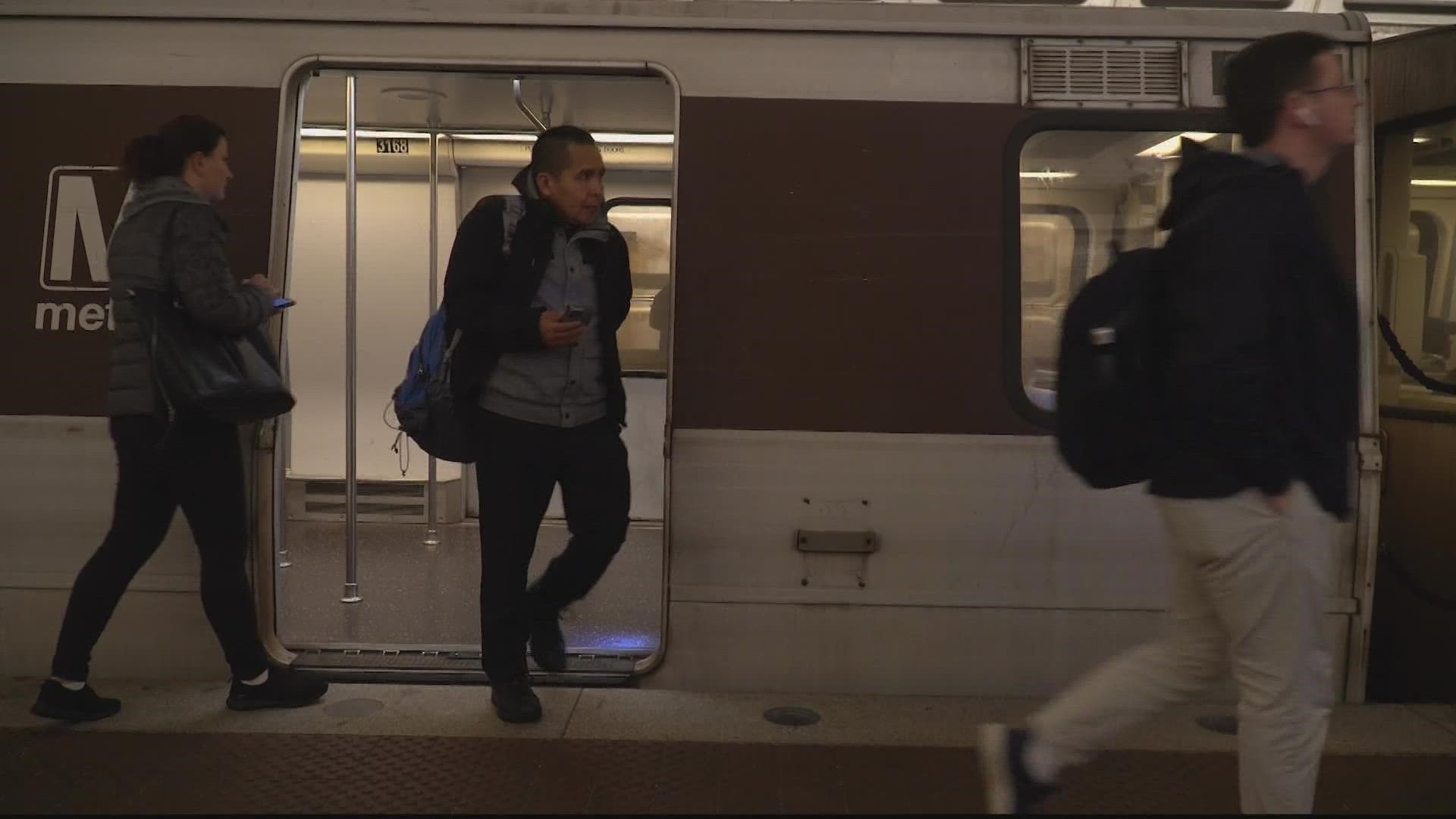WASHINGTON — Every day hundreds of thousands of people count on Metrorail to get them where they need to go. But with ridership down nearly two-thirds from pre-pandemic levels, from 626,000 daily riders in 2019 to 224,000 this year, WMATA is struggling to get its system back on track.
Now Metrorail may have an entirely new set of safety problems to correct, including fresh allegations by Washington Metrorail Safety Commission, the safety oversight agency for DC’s train system, of safety violations, including evidence Metrorail:
- Issued track safety clearance to people who didn’t meet WMATA’s own training standards
- Put rail cars into service that didn’t meet WMATA’s safety protocols
- And didn’t follow WMATA’s investigative procedures after a series of train overruns in November
A train overrun is when a conductor overshoots the proper stopping point in a station due to inattention, speeding or a mechanical issue increasing the chances of a collision. In the case of those overruns, WMSC said Metrorail deliberately ignored its own newly implemented safety standards requiring it to immediately remove the train and conductor from service to figure out what happened and prevent additional train overruns.
“The trend of Metro not following its written procedures is not new,” said David Mayer, WMSC’s CEO.
WMSC’s latest findings come on the heels of its 13th safety audit of WMATA in the past 3 years. In its report released in April, WMSC found Metrorail:
- Has a culture that accepts noncompliance with written operational rules, instructions, and manuals
- Does not effectively identify, track, communicate and address operational hazards
- And identified safety risks due to inadequate training, knowledge, certification or oversight requirements
In the wake of that scathing report, Metrorail was forced to pull 72 train operators out of service because they weren’t properly certified. WMATA says those operators have all been properly recertified and allowed back behind the controls of Metrorail trains.
WMSC said Metrorail is in the process of implementing other corrective actions required to address issues.
In a statement, WMATA said, “Safety is not static, and involves continuous improvement to review, design, train and oversee the effective implementation of our Metrorail rules.”
Mayer said the ongoing safety monitoring is aimed at preventing future accidents.
“We want to avoid any kind of a safety event and we certainly want to avoid any sort of a catastrophic event where we may have people get killed or injured,” Mayer said.
In its statement, WMATA added it is continually correcting safety issues brought to light by WMSC.
“Metro is committed to ensure compliance with all procedures and recently began implementing a comprehensive Safety Management System to capture and mitigate hazards, including compliance,” WMATA wrote.
Should Metrorail fail to follow through with fixes, WMSC can take action, including fines - or in extreme cases - halting operations.
That’s what happened when WMSC ordered the new 7000 series trains out of service over derailment concerns. Those 7000 series trains are now slowly being reintegrated into the system after Metro installed a new series of checks and balances to ensure their safety.
Despite the problems it continues to uncover at Metrorail, Mayer believes overall Metrorail is safe to ride.
“We are safe on these trains,” Mayer said. “But that said, there is always a way to improve continuously and that's really what the WMSC is all about,” Mayer said.
Mayer said the ultimate goal is to Metrorail be the best transit provider it can be.
WATCH NEXT: DC 'rethinking' Metro-for-all plan

